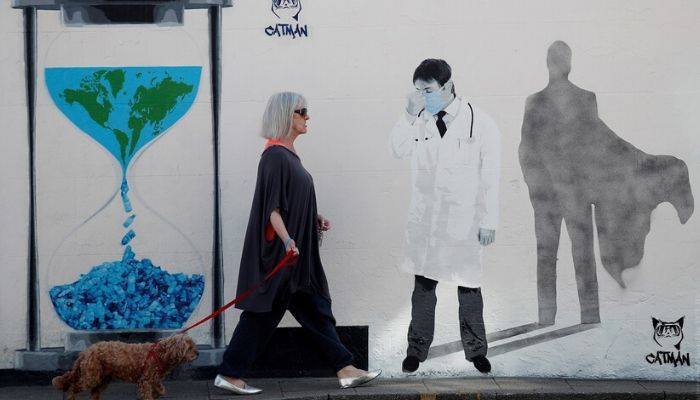Group of 239 scientists demand that WHO admit coronavirus is AIRBORNE -meaning the public should wear masks indoors and AC units should be fitted with filters
 1888 Monday, 06 July, 2020, 21:15 Hundreds of scientists say there is evidence that novel coronavirus can linger in smaller particles in the air and infect people indoors, which could mean that masks may be required while inside. The new findings have prompted researchers to call for the World Health Organization to revise recommendations that could radically affect how people go about their days while indoors in confined spaces. If their conclusion is accurate, people may need to keep wearing masks indoors, even when they are socially distanced, according to The New York Times. It would also mean that ventilation systems in schools, nursing homes, residences, and businesses would need to add new filters to their air conditioning units. Another possibility is that ultraviolet light would be deployed to kill tiny, infected particles. The WHO has said the coronavirus disease spreads primarily from person to person through small droplets from the nose or mouth, which are expelled when a person with COVID-19 coughs, sneezes or speaks. In an open letter to the agency, which the researchers plan to publish in a scientific journal next week, 239 scientists in 32 countries outlined the evidence showing smaller particles can infect people, Times reported on Saturday. The WHO did not immediately respond to a request for comment from Reuters. Whether carried by large droplets that zoom through the air after a sneeze, or by much smaller exhaled droplets that may glide the length of a room, the coronavirus is borne through air and can infect people when inhaled, the scientists said, according to the NYT. However, the health agency said the evidence for the virus being airborne was not convincing, according to the NYT. 'Especially in the last couple of months, we have been stating several times that we consider airborne transmission as possible but certainly not supported by solid or even clear evidence,' Dr. Benedetta Allegranzi, the WHO's technical lead of infection prevention and control, was quoted as saying by the NYT. There is debate about whether enough viral particles can survive in the air to infect people who breathe them in hours later. |

Latest UAE Mediation Efforts Succeed with Exchange of 314 Captives Between Russia and Ukraine
78600:49
Witkoff announced the continuation of U.S. consultations with Russia and Ukraine in the coming days.
551Yesterday, 22:48
Netanyahu convening security cabinet ahead of US-Iran nuclear talks
605Yesterday, 20:48
«We must act as if renewal were possible — not because it is assured, but because to do otherwise is to choose death»: Ruben Vardanyan
734Yesterday, 19:56
US military team deployed to Nigeria after recent attacks
491Yesterday, 19:12
US, Russia to reestablish military-to-military talks
560Yesterday, 18:43
Ukraine, Russia exchange POWs for the first time in months
556Yesterday, 17:07
Zelenskyy reveals updated figures on Ukraine’s losses in war with Russia
606Yesterday, 10:54
